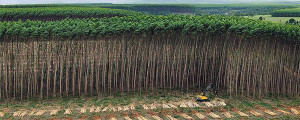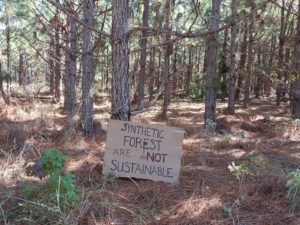The State of the forest movement in the era of Trump: Ideas for Strengthening Our Collective Work
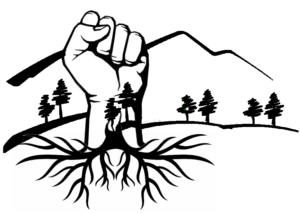 Trump is waging a war on both communities and the environment. The forests of the U.S. are going to be hit hard at the hands of Trump and his ultra-right wing band of robber barons.
Trump is waging a war on both communities and the environment. The forests of the U.S. are going to be hit hard at the hands of Trump and his ultra-right wing band of robber barons.
At the same time, the forest protection movement in this country has fragmented and communication amongst us has quieted since its height in the 1990s.
With this in mind, we have reached a critical moment for the movement for forest protection in the U.S.
These combinations of factors are leading many in the movement to begin conversations about regenerating and unifying forest protection efforts across North America. That is what we plan to discuss at a workshop at the 2017 Heartwood Forest Council in May.
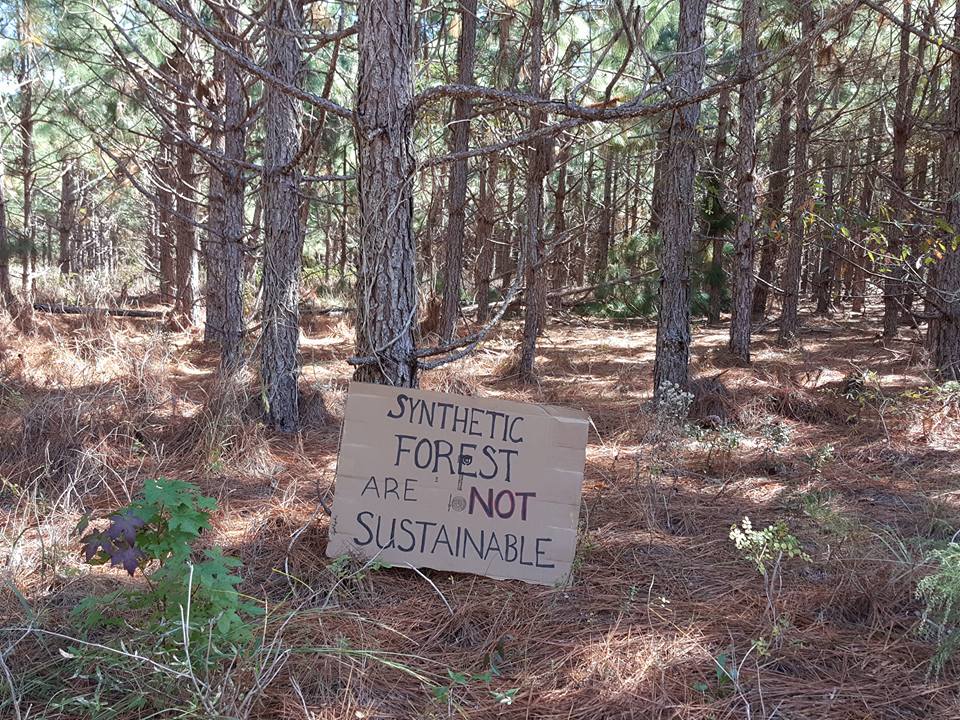
Genetically Engineered Trees Condemned in Myrtle Beach
North Myrtle Beach, SC– GE trees will threaten forests and communities throughout the U.S. Southeast–known by activists as “ground zero” for the development of GE trees.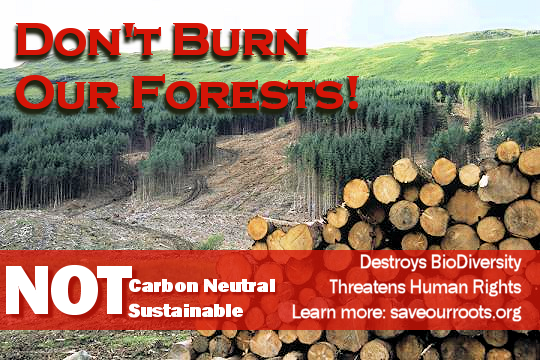
URGENT! Tell Your Senators; Don’t BURN Our FORESTS For FUEL!
Please sign this petition from Friends of the Earth…. Share this on social media – talk to your family, friends, community ….
 Right now, Congress is trying to pass an Energy Bill that’s full of giveaways to the timber industry. It would tell Environmental Protection Agency scientists to pretend that burning trees for fuel doesn’t hurt the climate. The bill could advance to conference any day now, but we can still block it. We need you to tell your Senators to stand up for our forests, not the timber industry!
Right now, Congress is trying to pass an Energy Bill that’s full of giveaways to the timber industry. It would tell Environmental Protection Agency scientists to pretend that burning trees for fuel doesn’t hurt the climate. The bill could advance to conference any day now, but we can still block it. We need you to tell your Senators to stand up for our forests, not the timber industry!
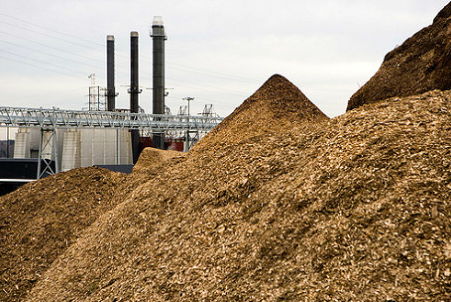
Biofuel or Biofraud?
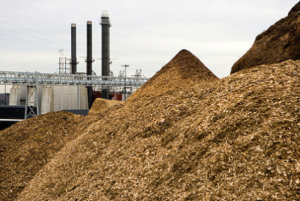 Biofuels consumed today are usually ethanol made from the sugar in sugar cane (or sugar beet) or they may be made from starch in grains. In the US this is mostly corn starch. Alternatively, biodiesel may be made from plant oils such as soybean or canola oil. Cellulosic biofuels, on the other hand, are biofuels made from crop residues (e.g. corn stover), wood, or whole plants, especially grasses (e.g. switchgrass). Cellulosic biofuels include cellulosic ethanol (made by isolating, breaking down and then fermenting the complex sugars in the cell walls of plants), as well as ‘drop in biofuels’. These biofuels are chemically almost identical to fossil-fuel based kerosene, diesel or gasoline.
Biofuels consumed today are usually ethanol made from the sugar in sugar cane (or sugar beet) or they may be made from starch in grains. In the US this is mostly corn starch. Alternatively, biodiesel may be made from plant oils such as soybean or canola oil. Cellulosic biofuels, on the other hand, are biofuels made from crop residues (e.g. corn stover), wood, or whole plants, especially grasses (e.g. switchgrass). Cellulosic biofuels include cellulosic ethanol (made by isolating, breaking down and then fermenting the complex sugars in the cell walls of plants), as well as ‘drop in biofuels’. These biofuels are chemically almost identical to fossil-fuel based kerosene, diesel or gasoline.

